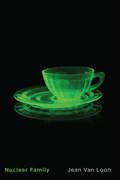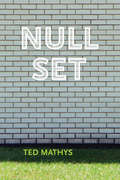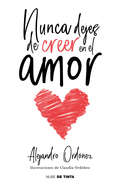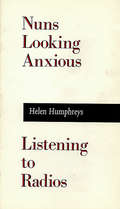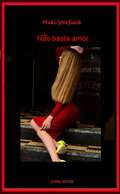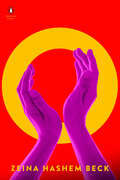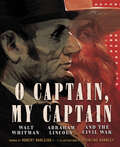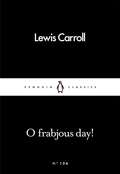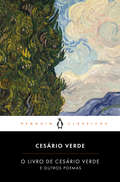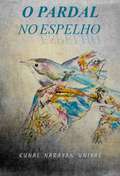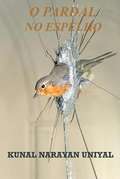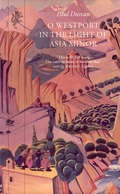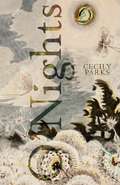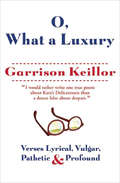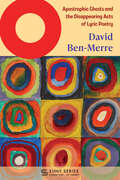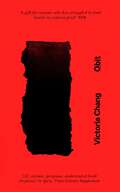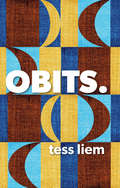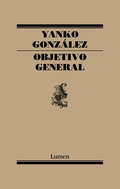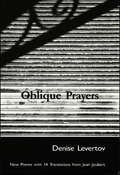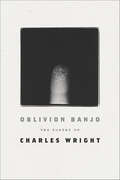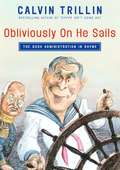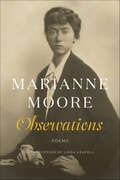- Table View
- List View
Nuclear Family (Hugh MacLennan Poetry Series)
by Jean Van LoonIn the night her whitened toes / cold sole on his calf / between his palms he warms / a slender foot – / twig bones, taut skin.Jean Van Loon’s father was a metallurgist in an Ottawa lab that contributed to the Manhattan Project. The Geiger counter he brought home exposed her mother’s dinner plate as radioactive. Her childhood friend’s father sold cobalt bombs to the Soviet Union. Unbeknownst even to the family, her mother worked for Canada’s Cold War intelligence service.Rooted in memory and history, Nuclear Family carries the reader into the sense of impending nuclear doom and the explosions of material wealth that shaped Van Loon’s childhood. Poems come alive with image, sound, and texture, portraying the innocence of childhood games, the worldwide effects of prolonged nuclear testing, and the long-lasting legacy of her father’s suicide – a fallout of radioactive silences.In Nuclear Family violent events, both global and familial, permeate a girl’s coming of age in a story of cataclysm and, ultimately, recovery.
Null Set
by Ted MathysNull Set collects the slightly obsessive possibilities that rise when we give them the space--odd jobs, trouble-making, and farm boy rambling, all in dialogue with mathematics, or William Faulkner, or other poets.From "Hypotenuse":HYPOTENUSEI write three, erase it, blow rubbershavings from the desk. Write its notation,erase it, blow shavings. Then three 3serased, shavings blown, persistfor the nonce, three of nothing, nowhereattending to discrete objects for counting,themselves objects at any rate. To kiss,sleep, and focus we know to closeour eyes, imagine. I do, see nothing.
Nunca dejes de creer en el amor
by Alejandro OrdóñezEl amor es un camino que se nos revela sin esperarlo. En este libro, Alejandro Ordóñez nos muestra las profundidades de cada una de las fases de una relación: desde el primer destello de posibilidad hasta la estabilidad romántica, explorando también qué sucede cuando una relación no puede dar más de sí y se decide separar los caminos, sin perder la fe en que llegará la persona correcta. En Nunca dejes de creer en el amor descubriremos, a través del característico estilo de prosa poética del autor, cómo este sentimiento, tan persistente, se abre paso a través de la reticencia y el dolor de cicatrices viejas para encontrar un nuevo corazón donde anidar y, quizá, madurar… y nos permite saber que si ese corazón no se logra convertir en un buen puerto, hay paz en dejarlo ir para seguir esa búsqueda en otro lugar. Lleno de optimismo y confianza, Alejandro Ordóñez nos muestra que, lo estemos buscando o no, el amor siempre encuentra la manera de entrar en nuestras vidas, ya sea en una mirada pasajera o en un encuentro fortuito. Estar abiertos a él es siempre el primer paso.
Nuns Looking Anxious, Listening to Radios
by Helen HumphreysAlcuin Citation in 1991 for excellence in book design in Canada. Nuns Looking Anxious, Listening to Radios is a work in the hazard of retrieval. What sticks in retrospect? Seldom what you would expect, not always the happiness. Otherwise you could train for life, you could actually learn from grandmothers, mothers; poems -- those bodies of lines and spaces -- would not appear unbidden bearing news you hold your breath to hear. Helen Humphreys comes through the rich reproach of the past into the present, a bruise, a beautiful bloom.
Nursery Rhymes
by Random HouseA book that contains a collection of many favorite nursery rhymes for children of all ages.
Nurturing Paws
by Whispering Angel BooksJohnston presents more than 80 uplifting and inspirational short stories and poems demonstrating the amazing physical, emotional, and spiritual healing effects of animals in people's lives. 196 pp.
Não basta amor
by Maki StarfieldA poetisa turca Yesim Agaogle e a poetisa japonesa Maki Starfield apresentam um belo diálogo poético em "Não basta amor". As ilustração e imagens são de Yesim Agaogle e Bill Wolak.
O (Penguin Poets)
by Zeina Hashem Beck&“O is so full of music and passion for life . . . Zeina Hashem Beck&’s poems unfold the abundance of our world.&” —Ilya Kaminsky, author of Deaf Republic From a "brilliant, absolutely essential voice" whose "poems feel like whole worlds" (Naomi Shihab Nye), a poetry collection considering the body physical, the body politic, and the body sacredZeina Hashem Beck writes at the intersection of the divine and the profane, where she crafts elegant, candid poems that simultaneously exude a boundless curiosity and a deep knowingness. Formally electrifying—from lyrics and triptychs to ghazals and Zeina's own duets, in which English and Arabic echo and contradict each other—O explores the limits of language, notions of home and exile, and stirring visions of motherhood, memory, and faith.
O Captain, My Captain: Walt Whitman, Abraham Lincoln, and the Civil War
by Robert BurleighThis beautifully illustrated children’s book explores how Walt Whitman was affected by the Civil War and inspired by President Lincoln.O Captain, My Captain tells the story of one of America’s greatest poets and how he was inspired by one of America’s greatest presidents. Whitman and Lincoln shared the national stage in Washington, DC, during the Civil War. Though the two men never met, Whitman would often see Lincoln’s carriage on the road. The president was never far from the poet’s mind, and Lincoln’s “grace under pressure” was something Whitman returned to again and again in his poetry. Whitman witnessed Lincoln’s second inauguration and mourned along with America as Lincoln’s funeral train wound its way across the landscape to his final resting place. The book includes the poem “O Captain! My Captain!” and an excerpt from “When Lilacs Last in the Dooryard Bloom’d,” as well as brief bios of Lincoln and Whitman, a timeline of Civil War events, endnotes, and a bibliography.
O Frabjous Day! (Penguin Little Black Classics)
by Lewis Carroll'I cried, "Come, tell me how you live!"And thumped him on the head.'Conjuring wily walruses, dancing lobsters, a Jabberwock and a Bandersnatch, Carroll's fantastical verse gave new words to the English language.
O Livro de Cesário Verde e Outros Poemas
by Cesário VerdeUM POETA REVOLUCIONÁRIO DA POESIA EM LÍNGUA PORTUGUESA. NOS PENGUIN CLÁSSICOS, O LIVRO DE CESÁRIO VERDE, AQUELE A QUEM FERNANDO PESSOA CHAMOU «MESTRE». COM PREFÁCIO DE PAULA MORÃO. «Se eu não morresse, nunca! E eternamente Buscasse e conseguisse a perfeição das cousas!» É de 1887 a publicação de um dos mais belos e importantes livros de poesia em língua portuguesa. No ano anterior, 1886, morria, aos 31 anos, o seu autor, vítima de tuberculose e da maior incompreensão e desdém dos seus pares. Cesário Verde, o homem que viu poesia na sujidade das ruas, no corpo doente da engomadeira, na azáfama dos trabalhadores, revolucionou o cânone e impôs uma nova forma de olhar o real, de o descrever e sentir. Entre a cidadee o campo, o caos e a liberdade, o idílio e a realidade, emerge em Cesário uma nova sensibilidade, transgressora, que privilegia os sentidos e as impressões do quotidiano em detrimento de um sentimentalismo exacerbado que sentia já distante, imposição de uma consciência social preconizadora de um final de século turbulento. Chegaria tarde demais para Cesário o reconhecimento do seu génio e do seu papel determinante na história da poesia portuguesa. Mas não seria tarde demais para quem, graças ao trabalho e dedicação do seu amigo Sousa Pinto, pôde ler os inigualáveis poemas de um dos maiores poetas de língua portuguesa e compreender o alcance da modernidade e inventividade dos versos daquele a quem Fernando Pessoa chamaria «mestre».
O Pardal no Espelho
by Kunal Narayan UniyalDesde o episódio da desobediência, o homem tem travado uma luta constante contra seu maior adversário: seu EGO. Quanto mais se entrega a seu ego, mais recebe do seu Eu divino. Suas motivações materialistas, sua busca por poder e sua brutal indiferença o alienam e isolam. Escravizado pelo ego, o homem se regozija por falso orgulho, por mais falsa glória e por uma segurança mais falsa ainda. A busca é infinda. A sede não é nunca saciada. A mente se mantém pré-ocupada. O coração fervilha em turbulência. A frieza da razão obscurece a sabedoria e a gênese humana anseia por justificativas. Contudo, o benevolente Senhor possui um plano maior. Somos todos agraciados por um reino interior. A partir do momento em que iniciamos nossa jornada interior, a névoa começa a se dissipar. A sabedoria infinita desperta. Todo barulho cessa e a calmaria se infiltra. A alegria verdadeira salta do coração rumo à paz, à harmonia e ao equilíbrio. Basta apenas uma pausa e uma espiadela para dentro.
O Pardal no Espelho
by Kunal Narayan UniyalDesde o ato de desobediência, o homem debateu-se desde sempre com o seu maior adversário, o seu ego. Quanto mais cede ao ego, mais obtém do seu eu divino.As suas motivações materialistas, a sua avidez pelo poder e a indiferença alienam-no e isolam-no.Reduzido à escravatura pelo ego, o homem compraz-se no falso orgulho, na falsa glória e na falsa segurança.A avidez nunca termina.A sede nunca está saciada.O espírito permanece inquieto.O coração fervilha na tempestade.As nuvens dissipam a sabedoria e a sede humana é ávida de jsutificações.Contudo, o Senhor benevolente tem um plano magistral.Possuímos todos um reino interior.No momento em que iniciamos a viagem rumo ao interior, a névoa começa a dissipar-se rumo à alvorada da sabedoria infinita.Todos os barulhos cessam e a calma invade o ser.A verdadeira alegria que jorra do caração conduz à paz, harmonia e equilíbrio.
O Westport In The Light Of Asia Minor
by Paul DurcanO Westport in the Light of Asia Minor was first published in a tiny edition in Dublin in 1975. It was Paul Durcan's first fully-fledged collection, and already displays an astonishingly mature, visionary power, shot through with the surrealism and heart-breaking comedy that have since become his hallmark. It won him the Patrick Kavanagh Award. Now Durcan's readers can discover what they have been missing. The poems are printed in the order he originally intended, and the volume concluded with six poems from his very first collaborative collection, Endsville (1967), with Brian Lynch.
O'Keeffe: Days in a Life
by C. S. Merrill&“Carol Merrill&’s tribute to Georgia O&’Keeffe is poems in the shape of finely rendered sketches, some of them even paintings. These intimate images convey the delicate and tough shape of O&’Keeffe&’s final years in New Mexico.&”—Joy Harjo, author of She Had Some Horses&“When I got O&’Keeffe mss I sat down after midnite at kitchen table when I should&’ve been in bed & read it thru in an hour because it was interesting, curious, distinctive, focused, condensed, epiphanous, ordinary & understandable. The details are all, sacramentalizing everyday life in a world of genius—a woman, vast space, chewy intelligence, almost selfless observation.&”—Allen Ginsberg, author of Howl
O'Nights
by Cecily Parks"In Cecily Parks' beautiful poems, the natural world teeters between being and seeming--the seeming a simulacrum projected onto the world by a mind's yearning, taxonomy and dread. Deeply metaphysical, and deeply attentive to our spiritual as well as physical uses and abuses of nature, O'Nights implicates language's --indeed, lyric poetry's--sad role in this endeavor."--Susan WheelerIn O'Nights, Cecily Parks constructs stunning manifestations of a modern Thoreauvian wilderness, investigating how the natural world gives shape to the self, body, and emotions. These lyrical, transcendental poems study the duality of nature's feminine and masculine identities, and in its simplicity, offers a space where humankind truly belongs.From "Bell":This progress, as in the wind-scalloped snowmeadowpretending to be moon. This love that sets us scramblingover the map's last ridge, our red hoods brightin shrunken sky. This metallic weather in which weare the ore. This alder. These crimson-tipped willowsreverberating next to a river of turquoise ice. Thisfollowing the deep tracks of one coyote steppingwhere another has stepped. This wildernessthat we trespass, burning like berries in the juniperand becoming the air in the belfry.Cecily Parks is the author of the chapbook Cold Work (Poetry Society of America, 2005) and the collection Field Folly Snow (University of Georgia Press, 2008), which was a finalist for the Norma Farber First Book Award and the Glasgow/Shenandoah Prize for Emerging Writers. Her poems have appeared in Boston Review, Kenyon Review, Orion, Tin House, Virginia Quarterly Review, the Yale Review, and elsewhere. She lives in Cambridge, Massachusetts.
O, What a Luxury: Verses Lyrical, Vulgar, Pathetic & Profound
by Garrison KeillorO What a Luxury: Verses Lyrical, Vulgar, Pathetic & Profound is the first poetry collection written by Garrison Keillor, the celebrated radio host of A Prairie Home Companion. Although he has edited several anthologies of his favorite poems, this volume forges a new path for him, as a poet of light verse. He writes with his characteristic combination of humor and insight on love, modernity, nostalgia, politics, religion, and other facets of daily life. Keillor’s verses are charming and playful, locating sublime song within the humdrum of being human.
O: Apostrophic Ghosts and the Disappearing Acts of Lyric Poetry (SUNY series, Literature... in Theory)
by David Ben-MerreConsiders how a series of poets reimagined the possibilities of "O" as a gesture of apostrophe and, even more so, of writing.In poetry circles, "O" is commonly associated with apostrophe—a dramatized turn to call out to an absent friend or idea. This call, however, is made possible by a graphic sign it pretends not to acknowledge. O follows poets who were rethinking the apostrophic "O" alongside its symbolic, iconic, and material forms. Organized conceptually rather than chronologically, the book explores how works by W. B. Yeats, Wallace Stevens, Elizabeth Bishop, James Merrill, Emily Dickinson, and Terrance Hayes, as well as the singer-songwriter Carly Simon and the band The Cure, each turn at deeply human moments to call forth an alternative to the present. Culminating in an experimental epilogue cowritten with the Romanticist Manu Samriti Chander, O engages with ongoing, sometimes excessive debates about lyric poetry and literary critical method, finding modest ground between their respective sides.
Obit
by Victoria ChangLos Angeles Times Book PrizePEN Voelcker AwardAnisfield-Wolf Book PrizeNew York Times 100 Notable BooksTime Magazine's 100 Must-Read BooksNPR's Best BooksNational Book Award in Poetry, LonglistNational Book Critics Circle, FinalistGriffin Poetry Prize, ShortlistFrank Sanchez Book AwardAfter her mother died, poet Victoria Chang refused to write elegies. Rather, she distilled her grief during a feverish two weeks by writing scores of poetic obituaries for all she lost in the world. These poems reinvent the form of newspaper obituary to both name what has died ('civility,' 'language,' 'the future,' 'Mother's blue dress') and the cultural impact of death on the living. Loss, and the love for the dead, becomes a conduit for self-expression. In this unflinching and lyrical book, Chang meets her grief and creates a powerful testament for the living.'Chang's new collection explores her father's illness and her mother's death, treating mortality as a constantly shifting enigma. A serene acceptance of grief' New York Times, "100 Notable Books of 2020"'Exceptional... Chang's poems expand and contract to create surprising geometries of language, vividly capturing the grief they explore' Publishers Weekly
Obits.
by Tess LiemObits. is a collection of prose poems in which a speaker attempts and fails to write obituaries for women and others whose memorials are missing, or who are represented only as statistics. To honour by elegy: she considers victims of mass deaths, fictional characters like Laura Palmer, her aunt (a woman who she knows less about than any of the people she researches), and her own Indonesian heritage.
Objetivo General
by Yanko GonzálezPoesía reunida del autor de Metales pesados, gran ícono de los 90. A principios de los noventa, Yanko González trazaba las primeras líneas de una poesía que dejaría grabada a fuego su marca en la escena literaria nacional y latinoamericana: aparecía en Chile una voz -una mixtura de voces, más bien- insólita, sugestiva, tan extraña como entrañable. "Más lejos no se puede llegar en la oxigenación de la poesía por el habla", diría a propósito de esos primeros poemas el crítico Niall Binns. Treinta años después, Objetivo general reúne buena parte de la obra poética de González. Abre con Elábuga, poderoso libro en torno a los suicidios -del cual en 2011 el autor ofreció un anticipo de acotada circulación-, sigue con una amplia selección de Alto Volta y Metales Pesados, sus libros señeros y, como cierre y punto de fuga, entrega un adelanto de Torpedos, su obra poético-visual en curso. Este libro invita a conocer o reconocer una escritura irrepetible donde las voces de la calle, la juventud y sus tribus, la tradición literaria, el amor y la academia se entreveran alucinantemente en una poesía que es pensamiento y música, observación e imagen de alto voltaje.
Oblique Prayers: Poetry
by Denise LevertovOver the years, Denise Levertov's poetry has moved ever more deeply into the realm of meditation, while yet speaking with the familiar voice of "the poet in the world." Oblique Prayers is arranged in four thematic sections that, taken together, work toward a mature philosophy in equal harmony with public activism and private reflection. A personal mood links the poems of "Decipherings." In "Prisoners," the poet addresses the continuing horrors of our dark time: genocide, imperialism, impending nuclear holocaust--human degradation in brutal political guise. Levertov is an accomplished translator. With "Fourteen Poems by Jean Joubert," she introduces English-speaking readers to a contemporary French poet whose work is remarkably akin to her own. "Of God and of the Gods," the final section of the book, is informed by a transcendent lyricism that can equate in a breath "a day of spring, a needle's eye."
Oblivion Banjo: The Poetry of Charles Wright
by Charles WrightThe selected works of one of our finest American poetsThe thread that dangles us between a dark and a darker dark, Is luminous, sure, but smooth sided. Don’t touch it here, and don’t touch it there. Don’t touch it, in fact, anywhere—Let it dangle and hold us hard, let it flash and swing.—from “Scar Tissue”Over the course of his work—more than twenty books in total—Charles Wright has built “one of the truly distinctive bodies of poetry created in the second half of the twentieth century” (David Young, Contemporary Poets). Oblivion Banjo, a capacious new selection spanning his decades-long career, showcases the central themes of Wright’s poetry: “language, landscape, and the idea of God.” No matter the precise subject of each poem, on display here is a vast and rich interior life, a mind wrestling with the tenuous relationship between the ways we describe the world and its reality.The recipient of almost every honor in poetry—the Pulitzer Prize, the National Book Award, and the Bollingen Prize, to name a few—and a former poet laureate of the United States, Wright is an essential voice in American letters. Oblivion Banjo is the perfect distillation of his inimitable career—for devout fans and newcomers alike.
Obliviously On He Sails: The Bush Administration in Rhyme
by Calvin TrillinCalvin Trillin employs everything for describing George Bush's rescue when commenting on the President's casual acknowledgment, after months of trying to persuade the nation otherwise, that there was never any evidence of Iraqi involvement in 9/11.
Observations: Poems
by Marianne MooreMarianne Moore's Observations stands with T. S. Eliot's The Waste Land, Ezra Pound's early Cantos, and Wallace Stevens's Harmonium as a landmark of modern poetry. But to the chagrin of many admirers, Moore eliminated a third of its contents from her subsequent poetry collections while radically revising some of the poems she retained. This groundbreaking book has been unavailable to the general reader since its original publication in the 1920s.Presented with a new introduction by Linda Leavell, the author of the award-winning biography Holding On Upside Down: The Life and Work of Marianne Moore, this reissue of Observations at last allows readers to experience the untamed force of Moore's most dazzling innovations. Her fellow modernists were thrilled by her originality, her "clear, flawless" language--to them she was "a rafter holding up . . . our uncompleted building." Equally forceful for subsequent generations, Observations was an "eye-opener" to the young Elizabeth Bishop, its poems "miracles of language and construction." John Ashbery has called "An Octopus" the finest poem of "our greatest modern poet." Moore's heroic open-mindedness and prescient views on multiculturalism, biodiversity, and individual liberty make her work uniquely suited to our times.Impeccably precise yet playfully elusive, emotionally complex but stripped of all sentiment, the poems in Observations show us one of America's greatest poets at the height of her powers.
